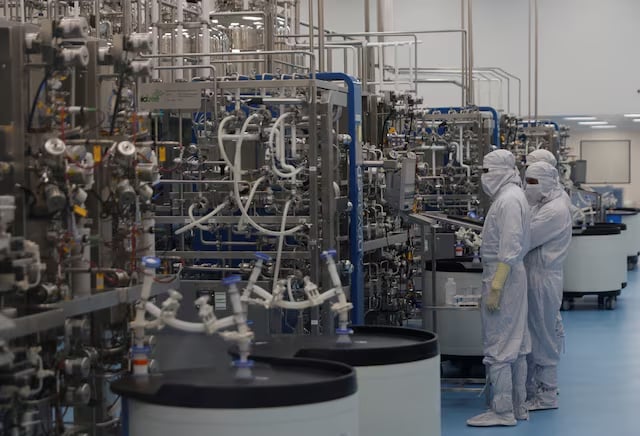Vaccination of boys and men against the human papillomavirus (HPV) reduces their risk of head and neck cancers and other malignancies, a new analysis shows, adding to the vaccine's proven benefit in protecting women from cervical cancer.
The study of more than 3.4 million people is one of the first long-term analyses of the vaccine's real-world effect on preventing HPV-related cancers of the head and neck, anal areas, penis, vulva, vagina and cervix, researchers said.
Previous studies of the vaccine have focused mainly on cervical cancer. In one large 2020 study from Sweden, for example, cervical cancer rates were 47 per 100,000 in vaccinated women and 94 per 100,000 in unvaccinated women.
The new study, scheduled for presentation at the upcoming American Society of Clinical Oncology meeting in Chicago, included more than 1.7 million volunteers who were vaccinated against HPV since 2010, at some point between ages 9 and 39, and roughly equal numbers of similar unvaccinated volunteers. About 44% were male.
Vaccinated males had lower rates of any HPV-related cancer and of head and neck cancers (3.4 and 2.8 cases, respectively per 100,000 vaccinated patients, compared with 7.5 and 6.3, respectively, per 100,000 unvaccinated patients), the study found.
Smoking was formerly the main driver of many head and neck cancers - such as cancers of the mouth and throat - but today the main cause is HPV infections, ASCO President Dr. Lynn Schuchter said on Thursday at a press briefing. Schucter was not involved in the study.
The new study "extends what we know" and shows that preventing infection with the vaccine helps prevent these additional HPV-related cancers, she added.
Vaccinated females had a lower risk of any HPV-related cancers in the study and, as expected, a lower risk of cervical cancer, compared with unvaccinated females.
Vaccination did not significantly reduce their risks for head and neck cancers and vulvar or vaginal cancer.
Merck's HPV vaccine was approved in 2006 for girls and women ages 9 to 26 and in 2009 for boys and men in that age group. The most recent version, Gardasil 9, has been approved in the U.S. since 2018 for use in children and adults ages 9 through 45.
A separate study to be presented at the ASCO meeting found that between 2011 and March 2020, U.S. uptake of the HPV vaccine rose from 23.3% to 43.0% of the eligible population, improving from 7.8% to 36.4% in males and from 37.7% to 49.4% among females.


















































